Families Coping
Effective strategies for you and your child
Erica Frydenberg
ACER Press
First published 2015
by ACER Press, an imprint of
Australian Council for Educational Research Ltd
19 Prospect Hill Road, Camberwell, Victoria, 3124, Australia
www.acerpress.com.au
Text copyright Erica Frydenberg 2015
Design and typography copyright ACER Press 2015
This book is copyright. All rights reserved. Except under the conditions described in the Copyright Act 1968 of Australia and subsequent amendments, and any exceptions permitted under the current statutory licence scheme administered by Copyright Agency (www.copyright.com.au), no part of this publication may be reproduced, stored in a retrieval system, transmitted, broadcast or communicated in any form or by any means, optical, digital, electronic, mechanical, photocopying, recording or otherwise, without the written permission of the publisher.
Edited by Penelope Goodes
Cover design, text design and typesetting by ACER Creative Services
Cover images (clockwise from top left) Konstantin Sutyagin, Monkey Business Images, Tom Wang, gpointstudio, all courtesy Shutterstock
Images on pages 12, 22, 45, 47, 60, 68, 79 and 85 by Katheryn Kallady, reproduced from the Early Years Coping Cards, available from ACER at Images on pages 65 and 8891 by Jock Macneish
Printed in Australia by BPA Print Group
National Library of Australia Cataloguing-in-Publication data:
| Creator: | Frydenberg, Erica, 1943-, author. |
| Title: | Families coping: effective strategies for you and your child / Erica Frydenberg. |
| ISBN: | 9781742862538 (paperback); 9781742864471 (ePub) |
| Notes: | Includes bibliographical references. |
| Subjects: | Adjustment (Psychology) |
| FamiliesPsychological aspects. |
| ParentingPsychological aspects. |
| Dewey Number: | 155.24 |
Contents
This book is dedicated to my adult children Joshua and Lexi, along with their partners, Amie and Adam: that they may enjoy the gift of being a parent.
Acknowledgements
A book is never written and brought to life through the work of one individual alone, particularly a book on parenting. Firstly my appreciation goes to my children, Josh and Lexi, with whom Harry and I have shared our adult lives, and to Oscar, Claudia and Luca, who have helped me to refresh and refine my parenting skills in more recent years.
Along the journey of parenting we operate with the best of intentions, take on board good ideas and then hope that all will turn out well. We nurture the garden, and the plants thrive under the right circumstances. My professional life has provided me with opportunities to learn from others, both in the context of parenting and particularly through the research of students who have contributed to the parenting project.
This is especially true of my colleague Jan Deans, who encouraged me to work in the early childhood area and who has been a wonderful partner in the early childhood project. Together we ran many parenting programs at the University of Melbourne, and Jans leadership of the Early Learning Centre has made this book possible.
Rachel Liang has also been on much of the journey with Jan Deans, and her magnificent contribution to the many drafts of this manuscript are much appreciated.
Special appreciation goes to Rebecca Leech, who has been a delight to work with as an editor at ACER.
And finally my appreciation goes to all the parents who have participated in the parenting programs: their experiences and insights have helped to shape this volume.
Introduction
Growing up in the 21st century
A day rarely goes by without some parenting advice or discussion of family life appearing in the media. Some of the advice is common sense and provides information that encourages parents to reflect on how they raise their children and confront the challenges of everyday living. Ultimately everyone wants the ideal family. We know the ideal family to be neither authoritarian nor laissez faire, but authoritative, where:
 communication is positive and effective
communication is positive and effective
 issues are discussed and conflicts raised
issues are discussed and conflicts raised
 parents can express concerns about likely consequences.
parents can express concerns about likely consequences.
In other words, in the ideal family, parents are confident and capable of taking charge.
Families Coping is a guide to building this confidence, and provides the tools to engender it.
The program addresses parents of young children aged between four and eight. The preschoolers will become school-aged children before long, and then adolescents this program focuses on the core skills that can be adapted for any context, for any age group.
At the core of the program are the well-researched foundational skills that have stood the test of time, yet remain relevant in the 21st century. The skills of effective communication are universally relevant across the life span for both children and adults in the home, at school and in workplace settings.
This program has a fundamental goal of building happy families, where parents can recognise both their own and their childrens needs; where individuals can listen to their children, assert themselves when required and solve problems collaboratively. We want children to be resilient and resourceful copers, who possess a healthy self-image and are able to negotiate relationships with their parents, siblings, peers and teachers.
Coping skills underscore positive parenting and healthy adaptation by children. This program:
 integrates parenting skills with communication skills
integrates parenting skills with communication skills
 focuses on healthy families
focuses on healthy families
 focuses on child development in the early years
focuses on child development in the early years
 fits with the contemporary interest in positive psychology.
fits with the contemporary interest in positive psychology.
Families Coping brings together two major theoretical frameworks, namely a skills-based humanistic positive parenting approach and the transactional model of stress and coping. Essentially it sits under the banner of positive psychology.
It draws on humanistic psychology, the contemporary positive psychology movement and a plethora of research in the coping skills domain. The program is informed by a rich body of research and practice by parent trainers and early-years researchers and educators, that is drawn on throughout the book.
In the developed world, a kaleidoscope of change is continually shifting. The changes impact every sphere of life in our communities, from technology through to industry and family life. The family is not the predictable institution that it once was. Families come in all forms, including single-parent, nuclear and extended families. Remarriage can result in blended families with children who have diverse living arrangements. Grandparents are sometimes part of the family support system. Parents are in the workforce through necessity and sometimes by choice, whilst dual-career couples, and stay-at-home fathers are features of contemporary Western communities. The movement of peoples through cultural globalisation has brought immigrants into new settings where they are required to use a wide range of strategies to adapt to their environment and to parent their children bi-culturally.
Next page
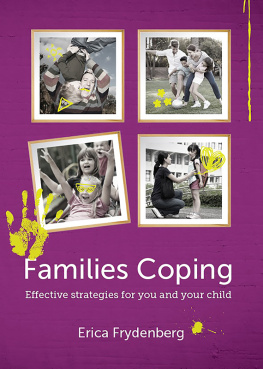
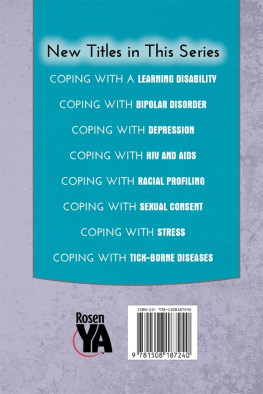

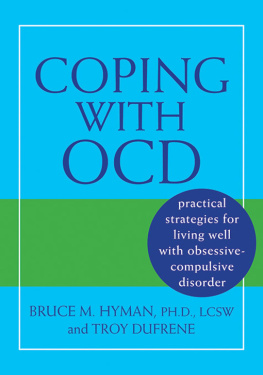
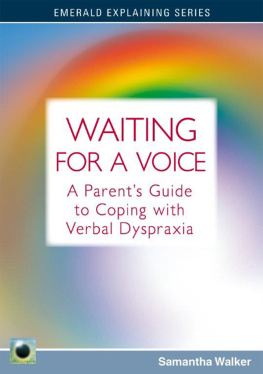
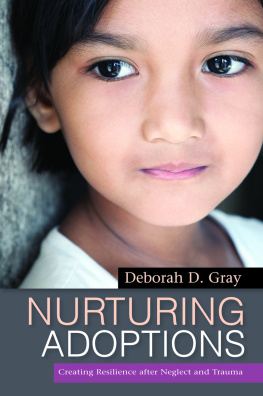
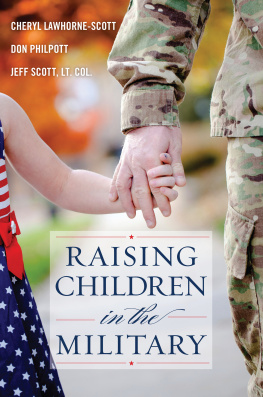
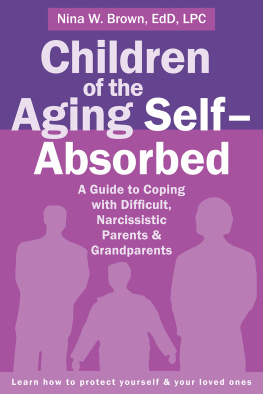
 communication is positive and effective
communication is positive and effective